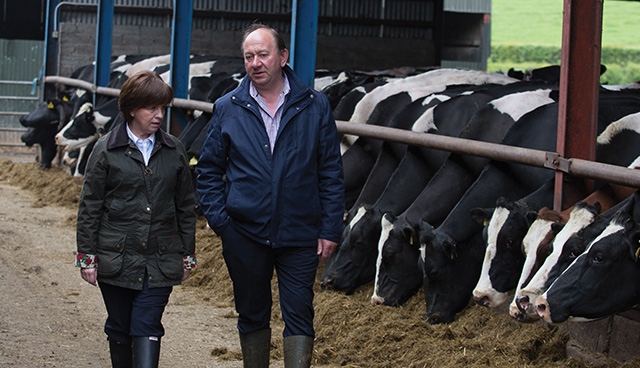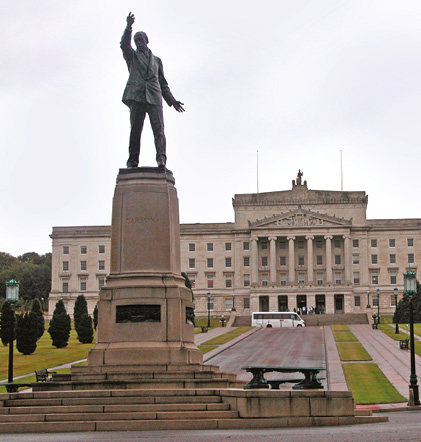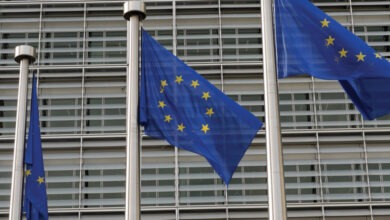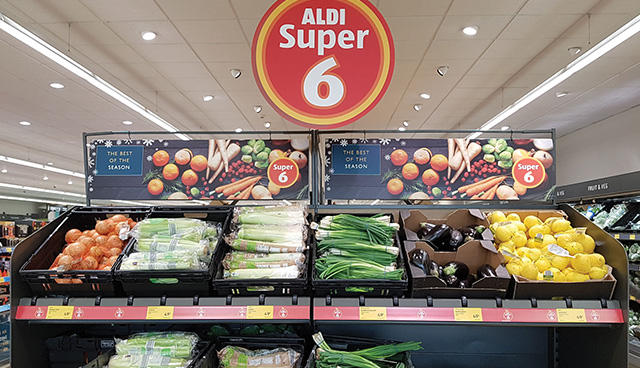Where now for agriculture in Northern Ireland


DUP spokesperson on agriculture and dairy farmer in Loughgall County Armagh, William Irwin MLA, discusses the challenges facing the sector and his vision for the sector post-Brexit.
I have always been interested in local politics and was fortunate enough to serve as a councillor before becoming an MLA. Being a Councillor gave me experience and an understanding of the everyday problems facing constituents.
While many know of my political interest, I consider myself as a farmer born and bred. It is a passion which I have been involved in all my life. It was in my late teens when I took over the family dairy farm from my father. In those days we milked 12 cows in a byre, but I was determined to grow and expand the business for future generations. I still try to help out as much as possible around the farm but my son now plays an important role in the business. I believe it is important that in the agri-food sector in particular, we encourage generational renewal and government has a role in encouraging young people into the sector.
With my interest in agriculture I was delighted when the party nominated me to the Agriculture Committee at Stormont. With my background in agriculture and the practical experiences from running a farm, I thought I would be able to use my knowledge to deliver for farmers in my constituency but also across Northern Ireland. During my time in this position I responded to a range of issues, from numerous flooding events, to market crisis and most notably the last depression in milk prices.
Agriculture is a volatile industry providing a wide range of public goods which the market will not reward farmers for. There is a real need for safety nets from government, but I want to ensure policies which allow farmers to farm and be competitive, without onerous demands on farmers. This has always been a bugbear of mine and while Chair of the Agriculture Committee I always tried to hold the Department of Agriculture to account and minimise the level of gold-plating.
I was successful in securing a revision of penalties imposed on farmers for single missing tags and, in particular, the threshold levels. This was an unfairness which was not justified and disproportionate in approach. The Department was forced to change its policy which had a positive impact for farmers. The level of red tape that farmers and in turn the Department has to deal with is wrong and instead of being enforcers, I would like to see better advice, research and knowledge transfer to build a more profitable and environmental sustainable agriculture.
Agriculture plays an important part in the social, environmental and economic fabric of Northern Ireland and I think the general public have some appreciation of that fact but we must do more. There is responsibility on farmers, lobby groups, processors, government and the general public to promote the industry. We live in an image-conscious society which means we need to promote the importance of agriculture, whether that is providing high-quality traceable food, the 100,000 agri-food related jobs in Northern Ireland, the role of agriculture in providing a carbon sink and the miles upon miles of hedges planted under agri-environment schemes. It is vital we do this to ensure consumer support, a clean green image for future exports and ensure the viability of the sector.
Brexit is no doubt an issue which gets a lot of press but I get the impression many farmers are suffering from ‘Brexit overload’ given the media coverage. The vast majority of farmers I talked to before the referendum, wanted to leave a European project, which was failing to deliver for their needs – whether that is the Common Agriculture Policy, the overwhelming amount of complexity and red tape, or disproportionate penalties applied to farmers. Now the vote has taken place, farmers want to get on with the task of exiting the European Union. They want a system which recognises the need for direct support that rewards productive, sustainable and profitable farming and is suited to their needs.
As a first step, the DUP secured in the confidence and supply agreement with the Conservative Party, a commitment to ensure direct support finances were maintained in cash terms to the end of the Parliament. This should provide security to farmers who all rely upon this money and now we must all focus on how agriculture is supported going forward. We have a blank page and we must now decide how to fill it. We must build on our existing trading relationships with the EU, but more importantly with growing markets outside of the EU. For example, China where the Prime Minister has already raised the issue of access for beef and more dairy products in particular.
“Agriculture is a volatile industry providing a wide range of public goods which the market will not reward farmers for.”
Unfortunately, at this point, given the reluctance of Sinn Féin to be a willing partner in government, we cannot deliver on all our manifesto promises. I want to get on with the legislative work I was elected to do but with Sinn Féin standing on the sidelines, unwilling to move, they hold everyone in Northern Ireland to ransom. Northern Ireland’s needs are best served by a devolved administration and the problem is compounded by the fact our civil service is reluctant to make policy decisions without a Minister in place. Meanwhile we all pay the price for Sinn Féin’s inability and unwillingness to govern.
In the political vacuum which we are experiencing in Northern Ireland, my party is in the fortunate position where we have an important input in Westminster.
We want to see devolution restored at Stormont but we understand that Northern Ireland cannot remain in limbo because we do not have a willing partner in government. We will continue to ensure delivery at Westminster for all the people of Northern Ireland and agriculture will continue to be a key policy area for this party.






